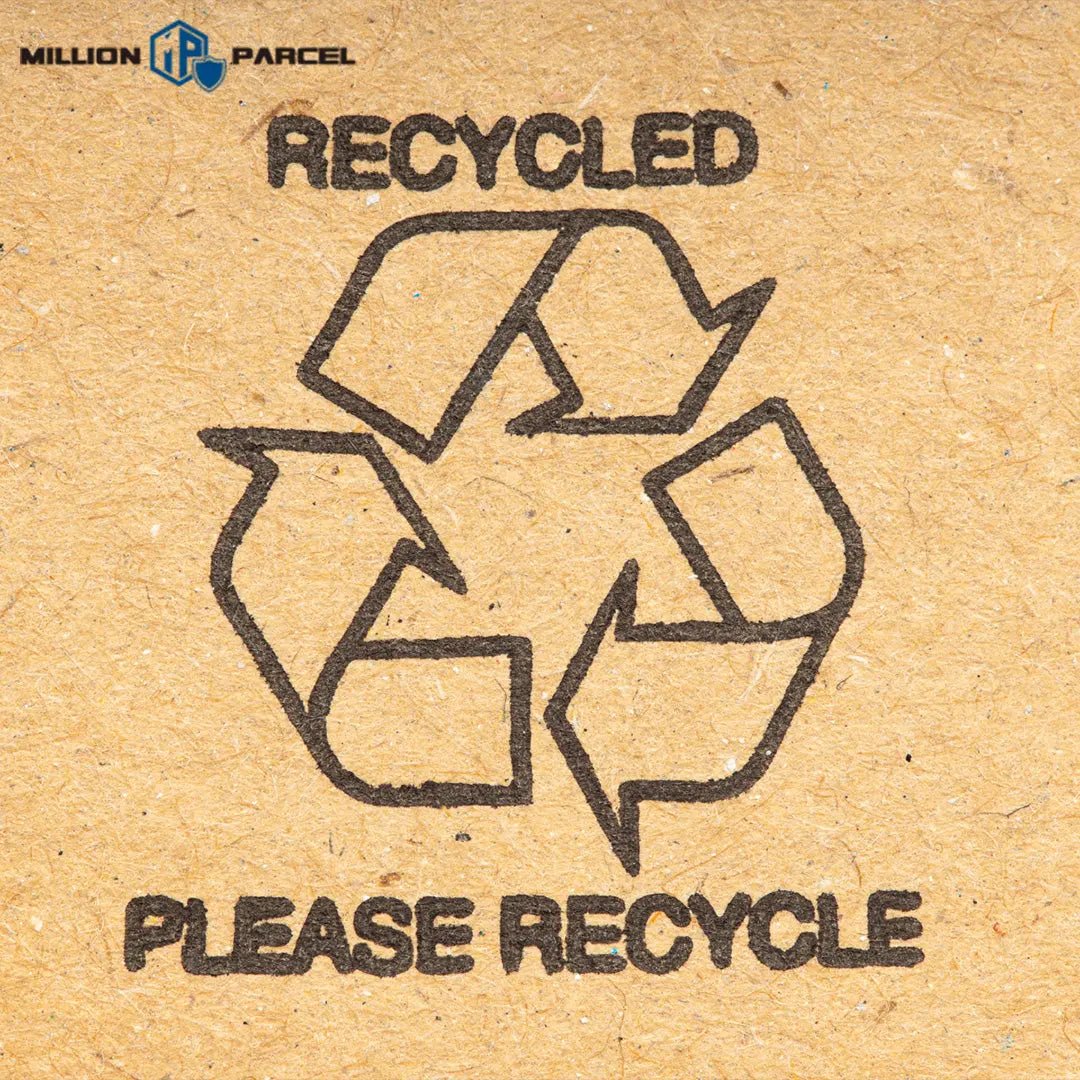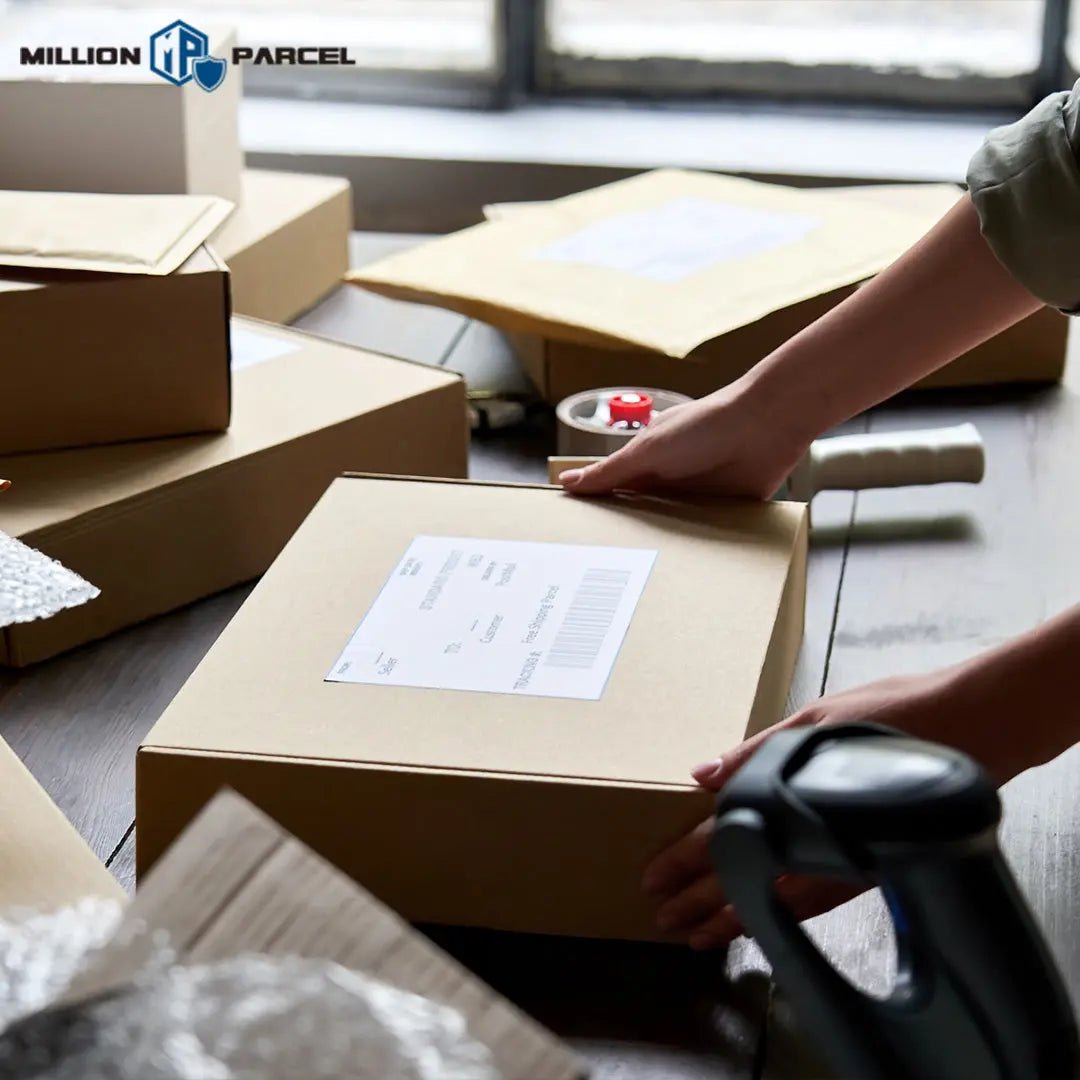Dengan pembungkusan plastik yang membentuk hampir 40% daripada sisa plastik global dan perubahan iklim menjadi ancaman yang semakin ketara dalam dunia moden kita, adalah lebih penting daripada sebelumnya untuk menilai semula tabiat kita dan mula menerima amalan mementingkan alam sekitar. Bagi perniagaan, adalah penting untuk beralih daripada pilihan pembungkusan sekali guna tradisional yang berbahaya kepada alam sekitar, dan sebaliknya memilih pilihan pembungkusan yang mampan seperti beg kertas kitar semula dan kotak kertas.
Jika anda berminat untuk mengambil langkah ke arah hari esok yang lebih hijau, sertai kami sambil kami meneroka semua yang perlu diketahui tentang pembungkusan eko. Ketahui tentang kepentingannya dalam mengurangkan kesan alam sekitar dan temui cerapan yang boleh diambil tindakan untuk perniagaan anda menerima pakai dan melaksanakan penyelesaian ini.
Bahagian 2: Pergerakan Global Ke Arah Kemampanan

Kepentingan pembungkusan telah berkembang seiring dengan lonjakan dalam membeli-belah dan penghantaran dalam talian, kerana ia memainkan peranan penting dalam mengangkut, melindungi dan mempersembahkan barangan. Walau bagaimanapun, kesan alam sekitarnya tidak dapat dinafikan, dengan sisa pembungkusan menyumbang dengan ketara kepada pencemaran, kehabisan sumber dan perubahan iklim.
2.1 Memahami Kesan Alam Sekitar Bahan Pembungkusan Tradisional

Tapak pelupusan sampah yang melimpah
Tahukah anda bahawa 91% sisa pembungkusan dihantar ke tapak pelupusan sampah dan alam sekitar? Selain itu, sifat plastik yang tidak terbiodegradasi — salah satu bahan yang paling biasa digunakan dalam pembungkusan tradisional — menyebabkan ia kekal di tapak pelupusan sampah selama beberapa dekad atau bahkan berabad-abad tanpa rosak. Mereka akhirnya menduduki ruang yang semakin terhad dan menegangkan infrastruktur pengurusan sisa. Apabila tapak pelupusan sampah ini mencapai kapasiti, limpahan menjadi tidak dapat dielakkan, dengan sisa yang berlebihan akhirnya menyusup ke dalam tanah dan air di sekelilingnya.
Pencairan kimia
Oleh kerana limpahan tapak pelupusan dan amalan pengurusan sisa yang tidak betul memburukkan lagi pencemaran air dan tanah, pembungkusan konvensional seperti beg plastik sekali guna mendatangkan kemudaratan lagi dengan melarutkan bahan berbahaya ke alam sekitar. Plastik, khususnya, membebaskan bahan kimia berbahaya seperti phthalates dan bisphenol A (BPA) dan mikroplastik apabila ia merosot, memburukkan lagi pencemaran, membahayakan kehidupan tumbuhan dan haiwan, dan membawa kepada akibat ekologi jangka panjang.
Pelepasan gas rumah hijau (GHG).
Di samping itu, kitaran hayat bahan pembungkusan tradisional, dari pengeluaran hingga pelupusan, berkait rapat dengan penjanaan pelepasan gas rumah hijau, terutamanya karbon dioksida dan metana. Pengekstrakan, pemprosesan, pembuatan dan pengangkutan komponen plastik ini menggunakan tenaga dan sumber melalui pembakaran bahan api fosil, seterusnya membebaskan gas rumah hijau yang ketara ke atmosfera dan menyumbang kepada pemanasan global. Selain itu, pembakaran sisa plastik terus menjadi amalan biasa di banyak bahagian dunia, membebaskan bahan pencemar seperti karbon hitam, yang mempunyai potensi pemanasan global sehingga 5000 kali lebih besar daripada karbon dioksida , memperhebatkan kerosakan yang berlaku kepada alam sekitar kita.
2.2. Permintaan yang semakin meningkat untuk Pembungkusan Eko

Akibat alam sekitar yang ketara dan berkekalan yang dikaitkan dengan penggunaan dan pelupusan pembungkusan konvensional yang berlebihan telah mendorong perubahan ketara dalam kalangan pengguna, syarikat dan entiti kerajaan ke arah meneroka penggantian yang mampan.
Ancaman kehabisan bahan api fosil
Sifat terhingga bahan api fosil, sumber tenaga tidak boleh diperbaharui, telah menjadi semakin ketara, dengan pakar meramalkan kehabisan bahan api itu dalam abad ini . Kesedaran ini, di samping kebimbangan yang semakin meningkat terhadap kesan alam sekitar daripada pengekstrakan dan pembakaran bahan api fosil, telah memangkinkan peralihan global ke arah pengganti yang boleh diperbaharui dan terbiodegradasi.
Peralihan ini juga melangkaui bidang pengeluaran tenaga, yang memuncak dengan permintaan yang semakin meningkat untuk pilihan mesra alam, terutamanya dalam pembungkusan. Terdapat keutamaan yang semakin meningkat untuk bahan pembungkusan yang lebih hijau seperti plastik berasaskan tumbuhan, beg kertas dan kotak kitar semula , dan alternatif boleh kompos.
Kesedaran alam sekitar yang semakin meningkat
Kesedaran eko yang meningkat dalam kalangan pelanggan juga mendorong permintaan untuk amalan perniagaan yang mampan. Dengan peningkatan kebolehcapaian maklumat dalam era moden melalui media sosial dan saluran berita dalam talian, pengguna mempunyai kesedaran yang lebih tinggi tentang isu seperti pencemaran plastik, limpahan tapak pelupusan dan kemusnahan habitat. Ini telah mendorong mereka untuk mencari produk mesra alam. Akibatnya, pengguna bukan sahaja mengubah tabiat mereka sendiri tetapi juga semakin mempertanggungjawabkan perniagaan terhadap amalan alam sekitar mereka, dengan 3 dalam 4 pelanggan mahu syarikat mengambil inisiatif dalam mengurangkan kesan alam sekitar mereka .
Dorongan kawal selia untuk kemampanan
Kerajaan di seluruh dunia juga melaksanakan peraturan yang lebih ketat bertujuan untuk mengurangkan pencemaran, meminimumkan sisa, dan mengurangkan kesan perubahan iklim. Peraturan-peraturan ini sering mengenakan sekatan ke atas penggunaan bahan seperti plastik sekali pakai dan juga mewajibkan penggunaan alternatif mesra alam.
Di Singapura, skim Pelaporan Pembungkusan Mandatori (MPR) mencontohi dorongan pengawalseliaan yang semakin meningkat untuk amalan yang lebih hijau. Di bawah skim ini, perniagaan dikehendaki mengemukakan laporan tahunan yang memperincikan jenis dan kuantiti bahan yang digunakan dalam produk mereka bersama-sama dengan strategi mereka untuk mengurangkan, menggunakan semula atau mengitar semulanya. Dengan mewajibkan ketelusan dan akauntabiliti dalam amalan pembungkusan, skim kerajaan seperti MPR menggalakkan syarikat menyumbang secara aktif kepada matlamat alam sekitar.
2.3. Apa yang Boleh Dilakukan oleh Perniagaan?

Terokai pilihan pembungkusan yang mampan
Pertama, perniagaan perlu mengambil inisiatif dan beralih kepada alternatif pembungkusan eko. Contohnya, bahan kitar semula seperti kotak kertas, kaca dan jenis plastik tertentu boleh dipulihkan dan diproses semula menjadi produk baharu, mengurangkan permintaan untuk bahan mentah dan mengurangkan pengumpulan sisa di tapak pelupusan sampah. Bahan terbiodegradasi, termasuk plastik berasaskan tumbuhan dan gentian semula jadi, meminimumkan kesan alam sekitar dengan terurai dari semasa ke semasa melalui proses biologi. Dan akhirnya, bahan kompos mengembalikan nutrien ke tanah apabila ia merosot, menawarkan penyelesaian gelung tertutup.
Menerima alternatif ini bukan sahaja membolehkan perniagaan mengurangkan jejak karbon mereka tetapi juga membolehkan mereka memenuhi pilihan pengguna untuk produk yang mementingkan alam sekitar.
Potong lemak dan jadi minimalis
Memilih alternatif yang mampan hanyalah langkah pertama. Perniagaan juga harus mengurangkan lemak daripada amalan pembungkusan mereka dengan menghapuskan lapisan atau komponen yang tidak perlu, menyelaraskan bahan kepada keperluan, dan juga mengoptimumkan reka bentuk untuk meminimumkan volum dan berat keseluruhan pakej mereka.
Ini bukan sahaja mengurangkan penggunaan sumber semasa pengeluaran, tetapi pembungkusan yang lebih ringan dan lebih kecil seperti kotak beralun juga diterjemahkan kepada mengurangkan pelepasan gas rumah hijau daripada penghantaran dan pengedaran.
Melaksanakan program kitar semula
Perniagaan juga boleh melangkah lebih jauh dengan melaksanakan program kitar semula. Contohnya, mereka boleh memberikan maklumat yang jelas dan boleh diakses tentang cara mengitar semula atau menggunakan semula beg atau bekas mereka, memperkasakan pengguna untuk membuat pilihan yang mementingkan alam sekitar dan melupuskan bahan dengan betul.
Jenama juga boleh mengambil bahagian secara aktif dalam program kitar semula, bekerjasama dengan kemudahan kitar semula tempatan untuk memastikan bahan pembungkusan mereka boleh dikitar semula dan diterima oleh infrastruktur sedia ada. Sebagai contoh, jenama penjagaan kulit yang berpangkalan di Singapura RE:ERTH telah bekerjasama dengan firma pengurusan sisa Environmental Solutions Asia (ESA) untuk mengitar semula bekas plastik mereka menjadi diesel bukan fosil yang diperolehi , menyumbang kepada pembangunan ekonomi bulat di mana bahan digunakan semula dan digunakan semula dan bukannya dibuang.
Bahagian 3: Panduan Perniagaan untuk Menavigasi Penyelesaian Pembungkusan Mampan

Di tengah-tengah seruan yang semakin meningkat untuk amalan mesra alam, sudah tiba masanya untuk anda mempertimbangkan untuk beralih daripada kaedah pembungkusan tradisional kepada kaedah yang lebih mampan dalam perjalanan anda ke arah amalan perniagaan yang lebih hijau.
3.1 Bagaimana Perniagaan Boleh Mendapat Manfaat Daripada Penyelesaian Pembungkusan Eko
Selain daripada kelebihan alam sekitar yang dibincangkan sebelum ini, menerima pembungkusan hijau menawarkan banyak faedah korporat, menjadikannya bukan sahaja pilihan beretika tetapi juga pelaburan berhemat dari segi kewangan untuk perniagaan anda.
Penjimatan kos jangka panjang
Walaupun kos pelaburan pendahuluan, peralihan kepada alternatif yang mampan menawarkan penjimatan kos jangka panjang dan faedah kewangan yang ketara.
Pertama, penggunaan pilihan yang boleh diguna semula dan boleh dikitar semula, seperti pembalut kertas berasaskan tumbuhan, kotak beralun dan pengirim poli terbiodegradasi , mengalihkan bahan daripada tapak pelupusan dan meminimumkan kos pengurusan sisa. Selain itu, penggunaan bahan yang lebih sedikit dan lebih ringan mengurangkan perbelanjaan bahan, manakala reka bentuk pakej yang dioptimumkan meningkatkan kecekapan ruang produk. Ini membolehkan pengangkutan lebih banyak produk setiap perjalanan, akhirnya mengurangkan perbelanjaan pengangkutan keseluruhan anda.
Dengan cara ini, alternatif ini memperkasakan kecekapan operasi, akhirnya menjimatkan kos untuk perniagaan anda sambil menyelaraskan dengan amalan perniagaan yang mesra alam.
Reputasi jenama dan hasil yang dipertingkatkan
Seperti yang dinyatakan sebelum ini, lebih ramai pengguna sedang mencari jenama yang mementingkan alam sekitar untuk menyokong.
Dengan beralih kepada pengganti seperti beg kertas kitar semula, perniagaan anda mempamerkan komitmen terhadap tanggungjawab alam sekitar, meningkatkan reputasi jenama anda dalam kalangan pengguna yang mementingkan alam sekitar dan juga menarik pelanggan baharu yang mengutamakan kelestarian.
Tambahan pula, inisiatif hijau boleh menjana publisiti positif dan liputan media, meningkatkan keterlihatan dan reputasi jenama anda dalam pasaran yang kompetitif. Memandangkan 82% pengguna sanggup membayar lebih untuk produk dengan pembungkusan yang mampan , mesra alam merupakan strategi yang berdaya maju untuk meningkatkan jualan dan meningkatkan hasil sambil menyelaraskan dengan keutamaan dan nilai pengguna.
Pematuhan peraturan
Menerima pilihan mesra alam memperkasakan perniagaan anda untuk mengemudi kedua-dua keperluan kawal selia domestik dan antarabangsa dengan lebih mudah. Ini memastikan pematuhan malah boleh memudahkan akses pasaran global pada masa hadapan.
Di samping itu, peraturan ini dijangka dipergiatkan berikutan penekanan yang semakin meningkat terhadap menangani perubahan iklim. Peralihan secara proaktif kepada pengganti yang mampan akan membantu perniagaan anda kekal kalis masa hadapan terhadap peralihan kawal selia secara tiba-tiba dan memperoleh kelebihan daya saing dalam pasaran.
3.2 4 Petua untuk Melaksanakan Pembungkusan Mampan

Peralihan kepada kemampanan melibatkan lebih daripada sekadar menukar beg plastik dengan beg kertas yang boleh dikitar semula; ia adalah satu usaha pelbagai rupa yang memerlukan pertimbangan yang teliti dan perancangan strategik untuk memastikan proses yang lancar.
Menilai amalan semasa
Langkah pertama yang kritikal dalam melaksanakan penyelesaian hijau ialah menjalankan penilaian menyeluruh terhadap amalan semasa anda, memberi perhatian yang teliti kepada bahan pembungkusan semasa anda, proses pengurusan sisa serta sebarang inisiatif alam sekitar sedia ada. Ini membolehkan anda mengenal pasti bidang untuk penambahbaikan dan menetapkan matlamat khusus, memastikan peralihan kepada kemampanan adalah bertujuan dan disasarkan, membimbing membuat keputusan sepanjang proses.
Pilih bahan yang betul
Walaupun kesedaran eko adalah penting, memastikan kefungsian pembungkusan anda sama pentingnya. Luangkan masa untuk menilai dan mempertimbangkan keperluan unik produk anda. Adakah pembungkusan anda perlu tahan lama dengan padding yang mencukupi untuk melindungi barangan rapuh, atau adakah keselamatan makanan menjadi kebimbangan utama untuk perniagaan anda? Atau mungkin anda sedang mencari pilihan yang estetik untuk memasarkan dan mempertahankan imej jenama anda.
Dengan mengingati pertimbangan ini, terokai alternatif yang mengekalkan integriti produk anda untuk peralihan yang lancar tanpa menjejaskan kualiti atau prestasi.
Terlibat dengan pembekal yang komited
Bagi perniagaan yang menyumber luar penyelesaian pembungkusan mereka, adalah penting untuk bekerjasama dengan pembekal yang khusus untuk amalan mesra alam dan boleh menyediakan pelbagai jenis bahan untuk semua keperluan anda. Ini bukan sahaja menjadikan proses peralihan menjadi mudah tetapi juga membantu mengurangkan kos yang berkaitan dengan penyumberan dan perolehan.
Selain itu, bekerjasama dengan pembekal yang berkongsi nilai dan matlamat anda juga memudahkan pertukaran pengetahuan, sumber dan amalan terbaik, membolehkan penambahbaikan dan inovasi berterusan dalam inisiatif yang mampan.
Komunikasi telus dengan pelanggan
Akhir sekali, komunikasi adalah kunci untuk membina kepercayaan dan kesetiaan di kalangan pelanggan anda. Bersikap telus tentang peralihan kepada bahan mesra alam melalui pembungkusan produk, platform digital atau label pada beg kertas dan kotak tersuai , memberikan maklumat yang jelas tentang bahan yang digunakan dan faedah alam sekitar mereka. Anda juga harus memasukkan label, simbol atau pensijilan eko yang boleh dikenali untuk membantu pelanggan mengenal pasti produk yang mampan dengan mudah dan mengukuhkan kredibiliti jenama anda.
3.3 Apakah Pilihan Yang Ada?
Tidak pasti tentang di mana untuk bermula dan bahan mana yang perlu dipertimbangkan? Berikut ialah beberapa pilihan popular yang tersedia untuk perniagaan yang ingin menerima alternatif mesra alam.
Alternatif berasaskan kertas

Bahan pembungkusan berasaskan kertas diperoleh daripada sumber biodegradasi dan boleh diperbaharui, menawarkan penyelesaian mampan yang meminimumkan kesan alam sekitar sepanjang kitaran hayatnya. Selain itu, sifat kitar semula mereka membolehkan pemulihan bahan yang cekap, mengurangkan permintaan untuk bahan mentah tambahan dan membantu mengurangkan penebangan hutan. Pengganti mesra alam ini merangkumi rangkaian produk, termasuk beg kertas kitar semula, kotak karton kertas dan pembalut kertas , menunjukkan fungsi yang mengejutkan, ketahanan dan daya tarikan estetik.
Kotak kadbod beralun

Sama seperti beg kertas dan kotak, kotak kadbod beralun juga diperbuat daripada gentian kertas yang boleh diperbaharui dan boleh dikitar semula. Terdiri daripada lapisan bergalur yang diapit di antara dua lapisan rata, kotak beralun itu mempunyai ciri kekuatan, ketahanan dan kusyen yang mengejutkan, menjadikannya sesuai untuk menghantar dan melindungi produk semasa transit.
Beg plastik berasaskan tumbuhan

Plastik berasaskan tumbuhan, juga dikenali sebagai bio-plastik, adalah alternatif hijau kepada plastik berasaskan petroleum tradisional, kerana ia diperoleh daripada sumber tumbuhan boleh diperbaharui seperti jagung atau tebu, mengurangkan kemerosotan alam sekitar. Selain itu, penanaman tumbuhan ini untuk bio-plastik mengurangkan pelepasan gas rumah hijau dengan menyerap karbon dioksida semasa pertumbuhan. Beg bioplastik bukan sahaja boleh terbiodegradasi tetapi ia juga menawarkan prestasi yang setanding dengan plastik tradisional, menjadikannya ideal untuk digunakan sebagai pengirim poli dan beg penyimpanan , menyediakan perniagaan anda dengan pembungkusan yang berfungsi dan mampan.
3.4 Soalan lazim tentang penyelesaian pembungkusan mesra alam
Apakah pembungkusan mesra alam?
Pembungkusan mesra alam menggunakan alternatif yang boleh diperbaharui, boleh kompos dan terbiodegradasi dan bukannya pilihan pembungkusan tradisional seperti plastik sekali guna.
Mengapa pembungkusan mampan penting?
Beralih kepada pembungkusan eko membantu mengurangkan kemerosotan alam sekitar dengan meminimumkan sisa, pencemaran, pelepasan gas rumah hijau dan pengurangan sumber.
Bagaimanakah saya boleh memulakan perniagaan kecil saya pada pembungkusan yang mampan?
Untuk perniagaan kecil, pertimbangkan untuk menyumber luar keperluan pembungkusan perniagaan anda kepada pembekal yang menawarkan pilihan yang mampan. Ini ialah cara kos efektif untuk perniagaan mula beralih kepada amalan yang lebih hijau.
Kesimpulan
Dalam perjalanan ke arah kemampanan, setiap pilihan adalah penting. Daripada bahan yang kami gunakan kepada cara kami membungkus dan menyampaikan produk, perniagaan mempunyai kuasa untuk memberi kesan positif kepada alam sekitar.
Peralihan kepada alternatif mesra alam hari ini dengan MillionParcel, kedai sehenti anda untuk semua keperluan pembungkusan anda. Kami menawarkan pilihan pembungkusan eko yang komprehensif, daripada beg kertas boleh dikitar semula ke kotak penghantaran beralun dan pengirim poli terbiodegradasi, menyediakan penyelesaian yang disesuaikan yang sejajar dengan objektif perniagaan anda sambil mengurangkan jejak alam sekitar anda.
Sertai kami dalam membuka jalan untuk hari esok yang lebih hijau— hubungi MillionParcel hari ini untuk meneroka pilihan yang mementingkan alam sekitar kami.






Tinggalkan komen
Laman ini dilindungi oleh hCaptcha dan tertakluk pada Dasar Privasi dan Terma Perkhidmatan hCaptcha.